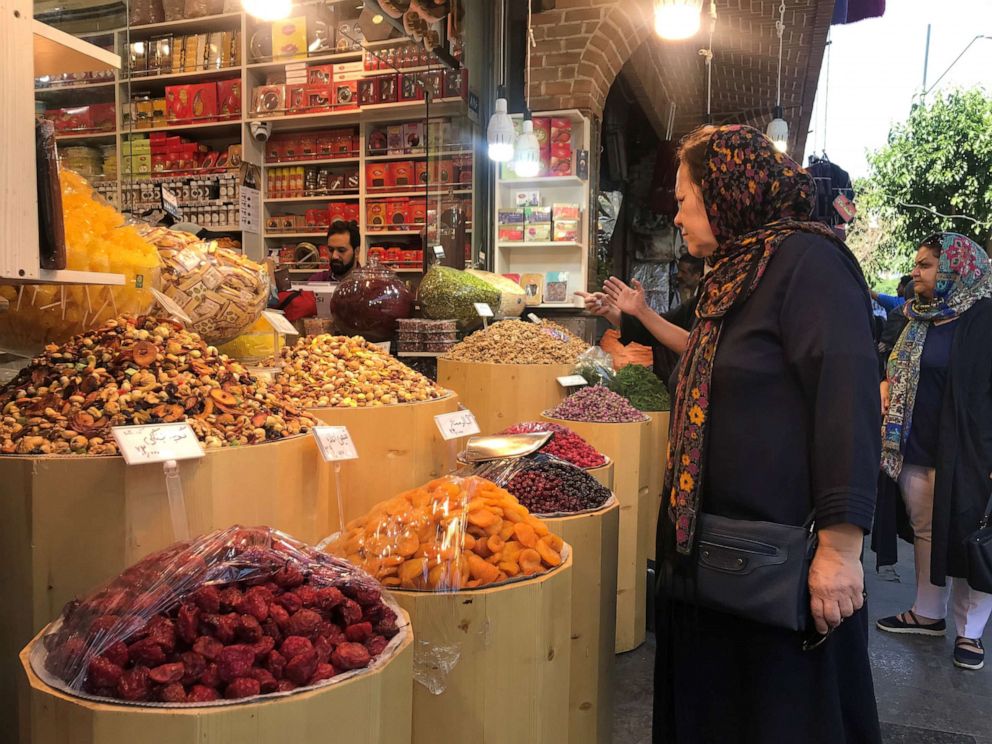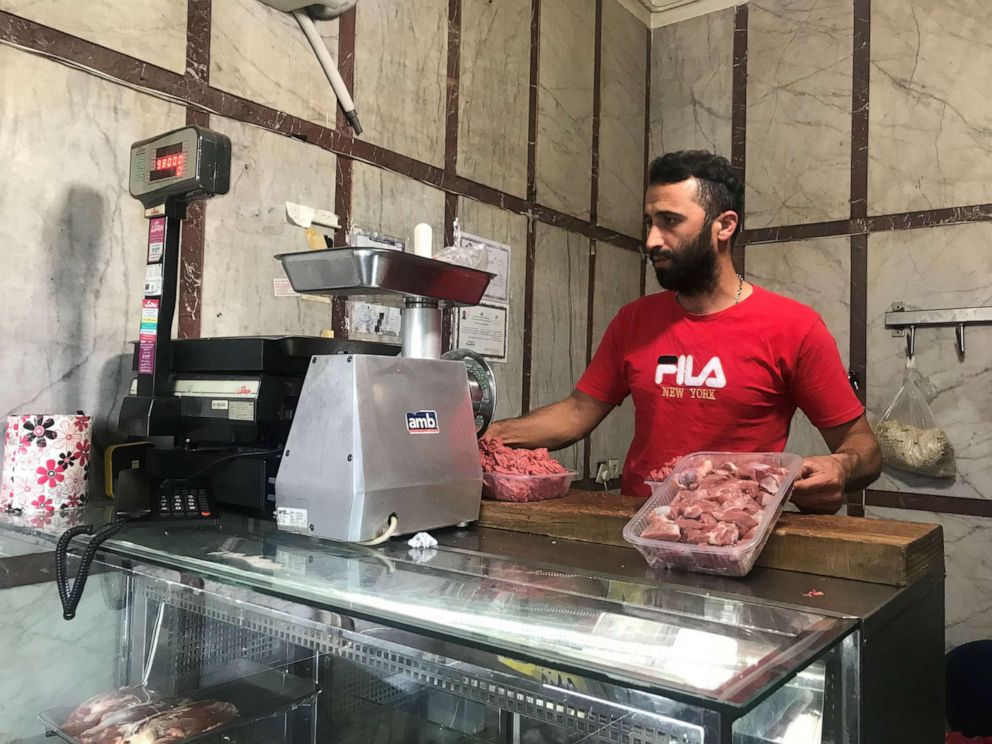Lean times for Iranians as sanctions push the economy to the brink
The sanctions have led to higher food prices and stress about the future.
TEHRAN, Iran -- On a recent evening during Ramadan, a 22-year-old carpet weaver named Mahshid left her workshop in Isfahan, Iran, and stepped into a shop to buy ingredients for a meal to break the fast. She thought about making "ghormeh sabzi," a lamb stew with herbs and beans and her husband's favorite dish, but instead she bought some potatoes and onions.
The last time they had red meat was six months ago.
Four years ago, there was jubilation in the streets of Tehran as Iranians celebrated a nuclear deal with the United States and the European Union, and the lifting of sanctions that people hoped would usher in a stronger economy. But such hopes were dashed last May, when President Donald Trump announced that he would exit the deal, known as the Joint Comprehensive Plan of Action, and reimpose the sanctions.
The pressure has pushed Iran's economy to the brink. Double-digit growth was replaced by an economic downturn, as Iran’s oil exports plunged. Inflation spiked 31% in 2018, according to the International Monetary Fund.
As of March, the unemployment rate of 15-to-24-years living in cities was at 31.5%, according to the official website of the quasi-government-run Statistical Center of Iran.
As the value of the Iranian rial drops, the price of goods has skyrocketed, with red meat and poultry climbing by 57%, vegetables by 47% and milk, cheese and eggs by 37%, according to the Statistical Center of Iran.
For ordinary Iranians like Mahshid, it has meant leaner shopping baskets and worry about the future.
"We have cut a lot out of our expenses, including fruit, red meat and our favorite weekly hangouts with friends," Mahshid told ABC News.

Mahshid and her husband were married about 18 months ago, but her husband, an accountant, was laid off six months later -- around the same time the United States pulled out of the nuclear deal -- and they have had to make do on her salary alone. She spoke on the condition that only one of her names be used, so as not to embarrass her family.
"We might be fine with not eating meat or not being able to buy new cloths for the first new year after my wedding, but what I cannot bear is the frustration that comes with it," Mahshid said.
Iranians blame both their own government as well as America for their hardship.
"This time it was America which made our life so hard," Monireh Davari, 27, an interior designer who has been out of a job since last spring, told ABC News. "They promised they would lift the sanctions if Iran stayed committed to the deal. We did, but they broke their promise,"
“I have no time to socialize. I am becoming a lonely person," she added. "I do not know how far I can tolerate this situation after years of getting training."

Iranian sociologist Nayereh Tavakoli, said there is a deep sense of frustration and disappointment in the country, and she believes the government needs to provide communities with free public places and events to make up for the economic stress that people feel. .
"Our people have to treat this situation as a shared misery. So, instead of avoiding socializing, we need to stick together," Tavakoli said.
Additional reporting by ABC News' Conor Finnegan.




